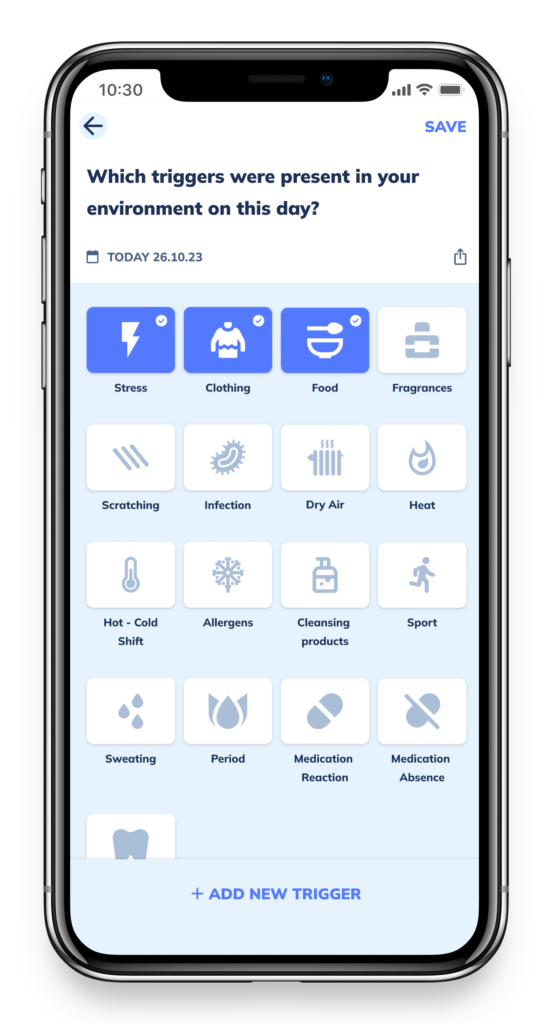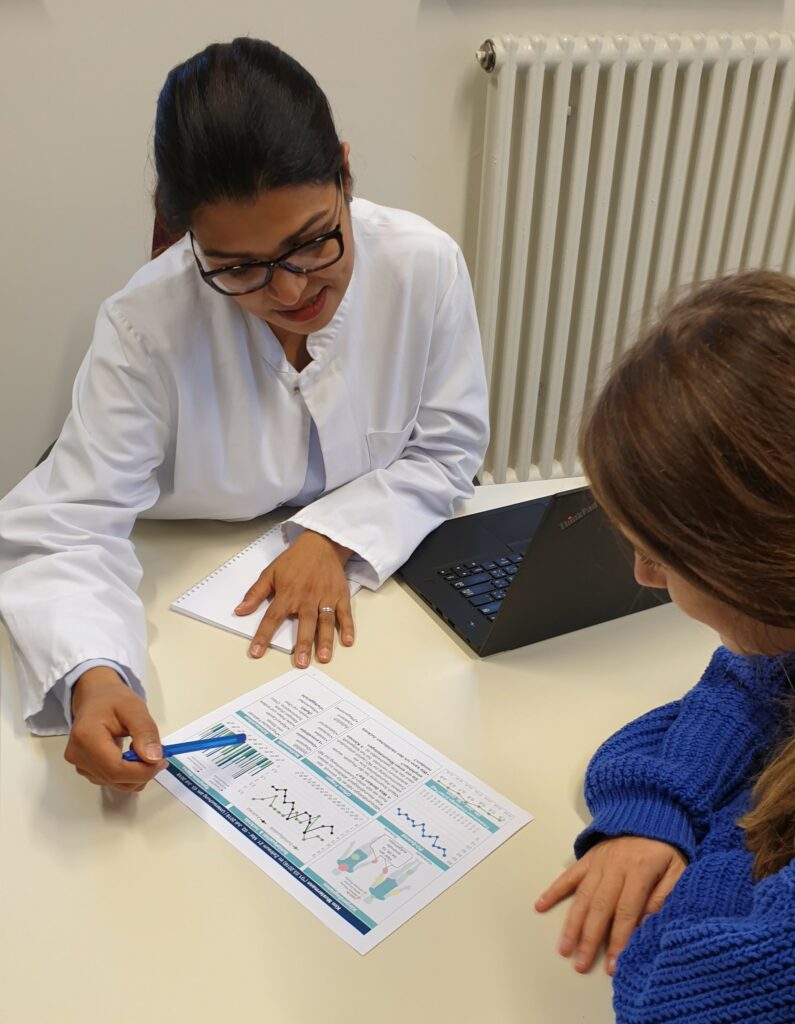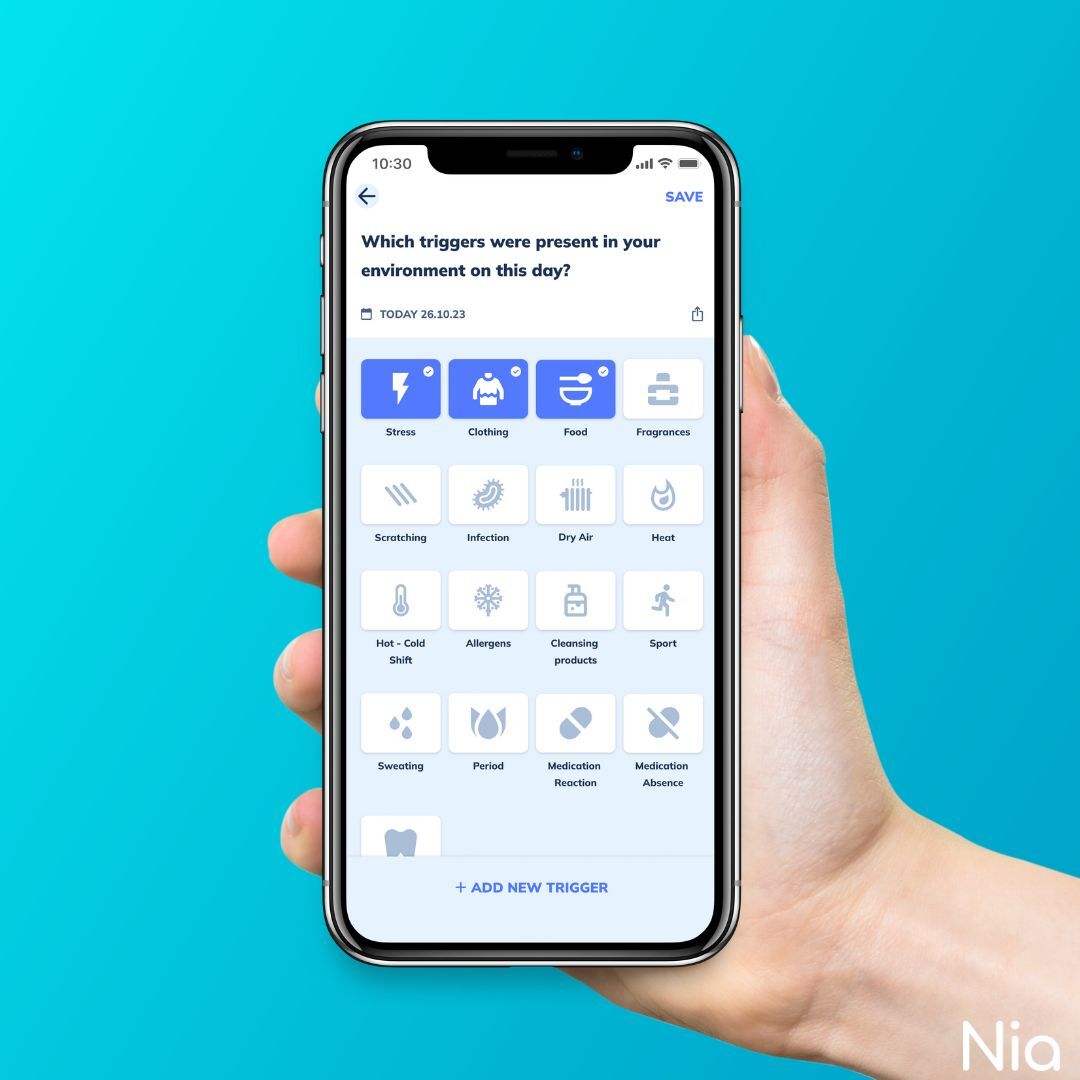There are many aspects in our everyday life that can worsen atopic dermatitis. An atopic dermatitis diary can help you better control the triggers specific to your personal situation. Additionally, an atopic dermatitis diary also assists you in remembering helpful habits.
Doctors often face the challenge of correctly assessing the perspectives of those affected or parents of those affected. Pediatrician PD Dr. med. Doris Staab from Charité University Medicine Berlin describes this as follows:

“Parents are accustomed to the skin condition of their child. An assessment of good, moderate, or poor varies greatly for each family.”
However, when the affected individuals or parents of affected children record the skin condition over an extended period, Dr. Staab states that this can be well-objectified with the help of a diary. Thus, the doctor is supported with valuable insights by the patient in their assessment and the treatment recommendations to be made.
An atopic dermatitis diary cannot replace a doctor
Please remember that your atopic dermatitis diary is not a substitute for a medical diagnosis. Always consult with your doctor. Especially if you are increasingly concerned about your skin condition or your child’s skin, or if your daily life is significantly affected, seek advice from a medical professional. If you plan to make significant changes to your daily habits (e.g., excluding certain foods from your diet), discuss these plans with your doctor beforehand.
The atopic dermatitis app Nia provides you with a modern and digital diary function. With Nia on your smartphone, you always have your atopic dermatitis diary at hand when you need it.
Your atopic dermatits diary in digital

As with any diary, you, like a detective, need to record every piece of information that could influence the condition of your skin. This may involve making entries at specific times, such as daily before bedtime. However, as a digital smartphone app, Nia is also with you throughout the day, making it easier to update your diary at any time compared to a paper diary. Your entries are directly and conveniently documented and accessible at any time.
However you decide to keep your atopic dermatitis diary, whether digitally or on paper, whether daily at a fixed time or whenever necessary, you should definitely keep an eye on the condition of your skin. You know your own skin or your child’s skin best. Therefore, everything that happened during the day, which you believe could affect the skin, is important. This way, important insights and patterns can be derived over an extended period. Discuss the documentation with your doctor and consider together what follow-up measures can be derived from it.

Various factors can influence the skin
Here are some specific factors that you should note in your diary if they apply to your situation. However, there might be completely different factors relevant to your case.
Your washing routine, how you care for your skin or your child’s skin, may contribute to various skin irritations. It’s good to know if changes you’ve made to your skincare habits have affected the skin. In this case, documentation in a diary can help. On one hand, it helps you better track the skin’s reaction to changes over time. On the other hand, it makes it easier to maintain good habits.
Incorrect skincare can be a trigger
Some things to consider in this context:
- How often do you or your child touch or scratch irritated skin on the body or face? Does it make a difference when trying not to do so?
- Does the frequency of your washing, showering, and bathing have an impact on the skin condition, or are skin irritations determined by the frequency?
- Are there different soaps or moisturizers in your daily life that either help or harm the skin?
- What are your shower and bath habits like?
- Do you use warm water instead of hot water, as recommended?
- Do you gently pat the skin dry afterward?
In conclusion, it is important to emphasize once again that keeping an atopic dermatitis diary is not a substitute for the diagnosis of a medical professional. However, it can help you better understand your personal situation and the highly individualized nature of atopic dermatitis. Keeping a diary is a good start to gradually become more independent and self-reliant in dealing with the condition.

